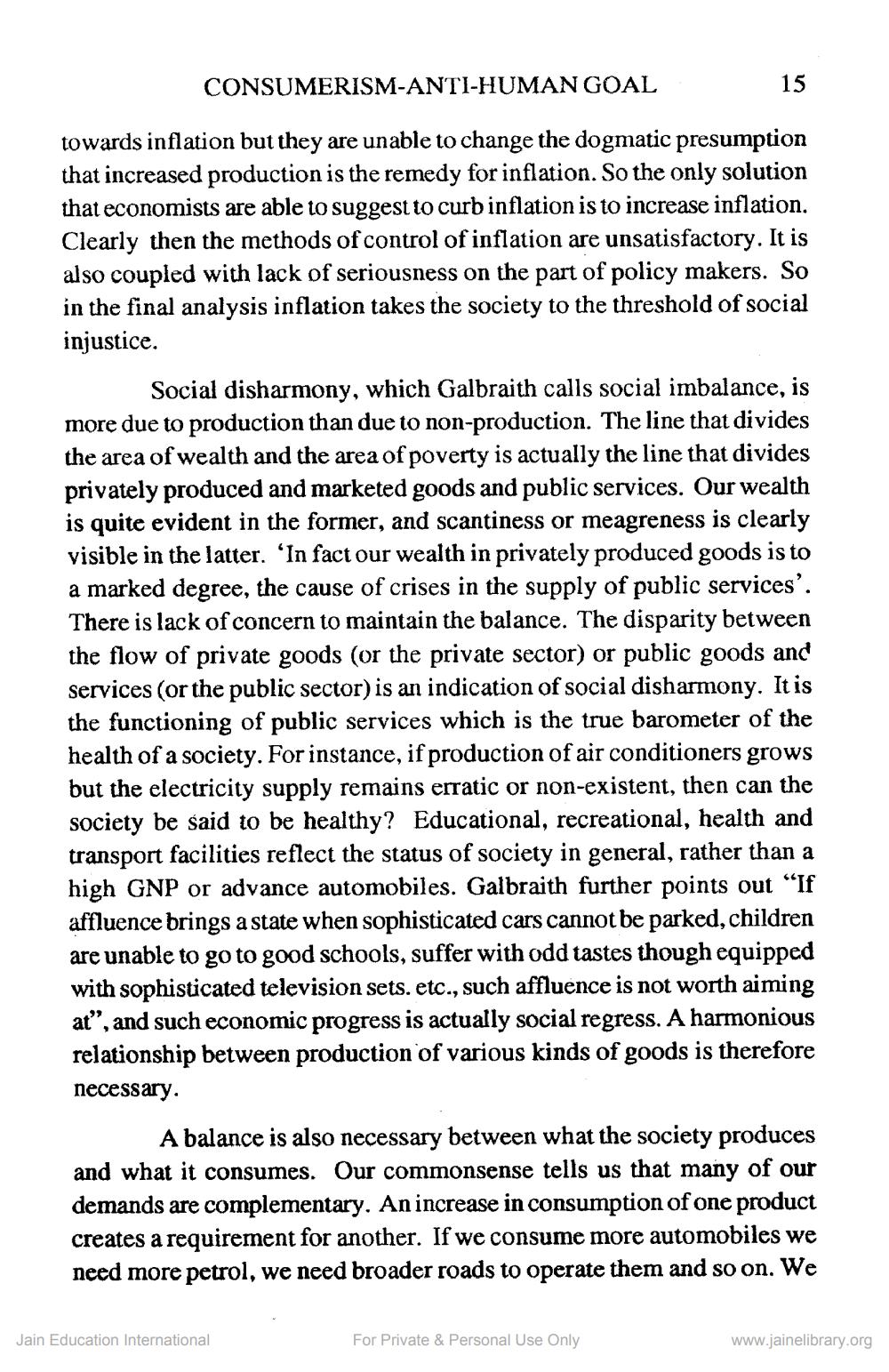________________
CONSUMERISM-ANTI-HUMAN GOAL
towards inflation but they are unable to change the dogmatic presumption that increased production is the remedy for inflation. So the only solution that economists are able to suggest to curb inflation is to increase inflation. Clearly then the methods of control of inflation are unsatisfactory. It is also coupled with lack of seriousness on the part of policy makers. So in the final analysis inflation takes the society to the threshold of social injustice.
Social disharmony, which Galbraith calls social imbalance, is more due to production than due to non-production. The line that divides the area of wealth and the area of poverty is actually the line that divides privately produced and marketed goods and public services. Our wealth is quite evident in the former, and scantiness or meagreness is clearly visible in the latter. 'In fact our wealth in privately produced goods is to a marked degree, the cause of crises in the supply of public services'. There is lack of concern to maintain the balance. The disparity between the flow of private goods (or the private sector) or public goods and services (or the public sector) is an indication of social disharmony. It is the functioning of public services which is the true barometer of the health of a society. For instance, if production of air conditioners grows but the electricity supply remains erratic or non-existent, then can the society be said to be healthy? Educational, recreational, health and transport facilities reflect the status of society in general, rather than a high GNP or advance automobiles. Galbraith further points out “If affluence brings a state when sophisticated cars cannot be parked, children are unable to go to good schools, suffer with odd tastes though equipped with sophisticated television sets. etc., such affluence is not worth aiming at”, and such economic progress is actually social regress. A harmonious relationship between production of various kinds of goods is therefore necessary.
A balance is also necessary between what the society produces and what it consumes. Our commonsense tells us that many of our demands are complementary. An increase in consumption of one product creates a requirement for another. If we consume more automobiles we need more petrol, we need broader roads to operate them and so on. We
Jain Education International
For Private & Personal Use Only
www.jainelibrary.org




